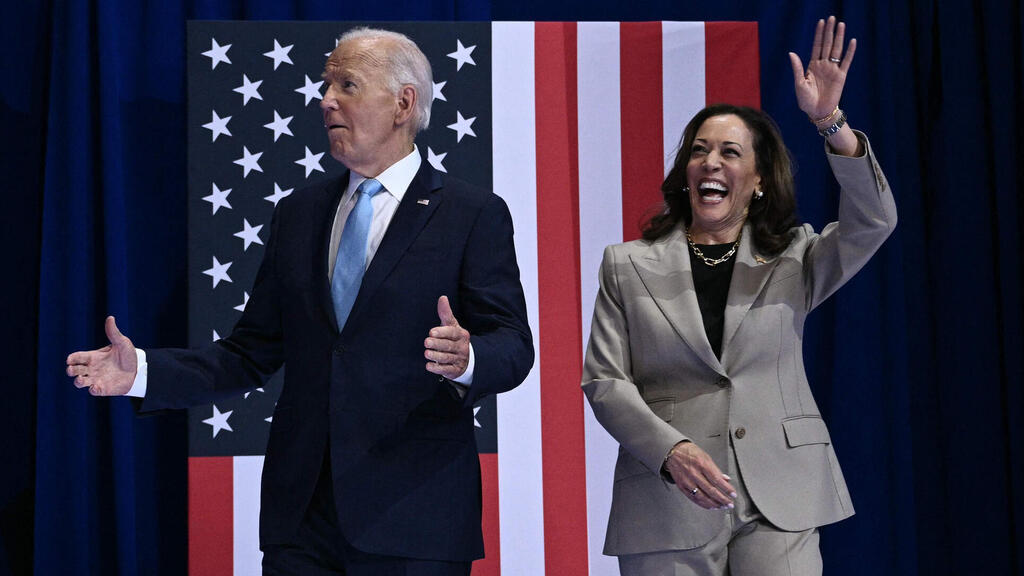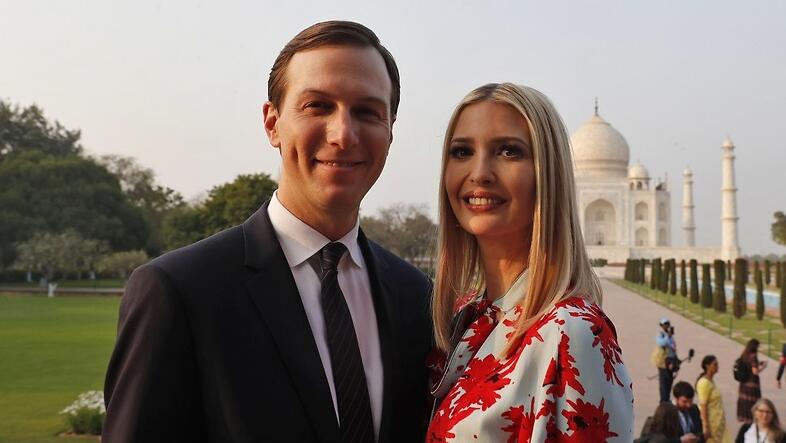Getting your Trinity Audio player ready...
Prime Minister Benjamin Netanyahu is praying for Republican presidential candidate and former U.S. president Donald Trump to get reelected in the upcoming elections overnight Tuesday.
In the past, Netanyahu has privately remarked that Democratic administrations, including the current one, have worked behind the scenes to bring him down. There's bad blood between the prime minister and his close allies and the Democratic Party, which regards him with suspicion.
4 View gallery


Donald Trump, Prime Minister Benjamin Netanyahu, U.S. Vice President Kamala Harris
(Photo: AP, Ziv Koren, Haim Goldberg/Flash90)
Nevertheless, despite Netanyahu's hope for a Trump victory, he may have to be cautious about what he wishes for. The former president is an unpredictable figure who could potentially cause Netanyahu more trouble than Democratic candidate Kamala Harris.
“We are building the biggest and broadest coalition in American Political History. This includes record-breaking numbers of Arab and Muslim Voters in Michigan who want PEACE. They know Kamala and her warmonger Cabinet will invade the Middle East, get millions of Muslims killed, and start World War III. VOTE TRUMP, AND BRING BACK PEACE!” Trump posted on his X account on Tuesday.
If Trump is elected, it would be his second and final term as president, meaning he wouldn’t need to consider others and would act solely in his own interest.
Trump might attempt to revive the "Deal of the Century," which centers on establishing a Palestinian state alongside normalization with Saudi Arabia. In the proposed deal, two states would exist side by side, with 70% of the West Bank and 100% of Gaza under Palestinian rule.
Trump could pursue peace to secure a Nobel Prize and erase the cloud of scandals around him, and he wouldn’t hesitate to pressure Netanyahu should he be required to.
If Harris is elected, she’d be under more pressure in her first term. Influential Jewish organizations in the U.S. could unite to exert pressure on the Democratic candidate. Harris is expected to be less supportive of Israel than U.S. President Joe Biden.
A Democratic administration would likely pressure Israel on the Palestinian issue, whether by promoting a two-state solution or pushing for diplomatic breakthroughs that allow for some degree of separation while maintaining Israeli security and upholding human rights.
Harris and her party are generally expected to take a more pro-Palestinian stance and work to revitalize the Palestinian Authority in Gaza.
The sanctions imposed by the Biden administration on violent Jewish settlers could intensify significantly under a Harris administration. She’s expected to take action against illegal outposts in Palestinian territories and might consider imposing sanctions on ministers Itamar Ben-Gvir and Bezalel Smotrich.
Neither candidate rules out a new nuclear deal with Iran, but it’s likely that Trump would exert more pressure on Iran and be more accommodating toward Israel compared to Harris. Trump might also be more open to implementing the changes Israel seeks in UN Resolution 1701 to distance Hezbollah from Israel’s border.
Regardless of who wins, Israel will enter a critical period following the inauguration in January 2025. Outgoing President Biden will want to leave a clean slate for his successor regarding the Middle Eastern conflict. Both Harris and Trump have already said they’d push to end the war and secure the return of the hostages.
Ynet reporter Daniel Edelson in Kamala Harris rally
(Video: Daniel Edelson)
Support for Israel hinges not only on the president but also on the team they build around them. Trump is expected to appoint pro-Israel figures like Mike Pompeo, who could serve as Secretary of State or Defense. David Friedman, who was the U.S. ambassador to Israel, is also considered for a senior role.
Other possible candidates include Senator Marco Rubio and Nikki Haley, both strong Israel supporters. Jared Kushner and Jason Greenblatt are unlikely to return to official roles but would likely continue advising Trump. Netanyahu can also rely on pro-Israel senators like Lindsey Graham to influence Trump in Israel’s favor.
Harris's team may be somewhat less favorable toward Israel, though not necessarily hostile. Potential key figures in her administration include former Barack Obama officials like Phil Gordon, Wendy Sherman and Rahm Emanuel. Israel is concerned about the potential influence of the Democratic Party’s progressive wing, which is highly critical of Israel.
Neither team is interested in military confrontations. In Trump’s case, a return to office could bolster the isolationist faction within the Republican Party, those opposed to U.S. involvement in international conflicts. If that happens, it could spell trouble for Israel, potentially strengthening the Russian-Chinese axis.
Get the Ynetnews app on your smartphone:









